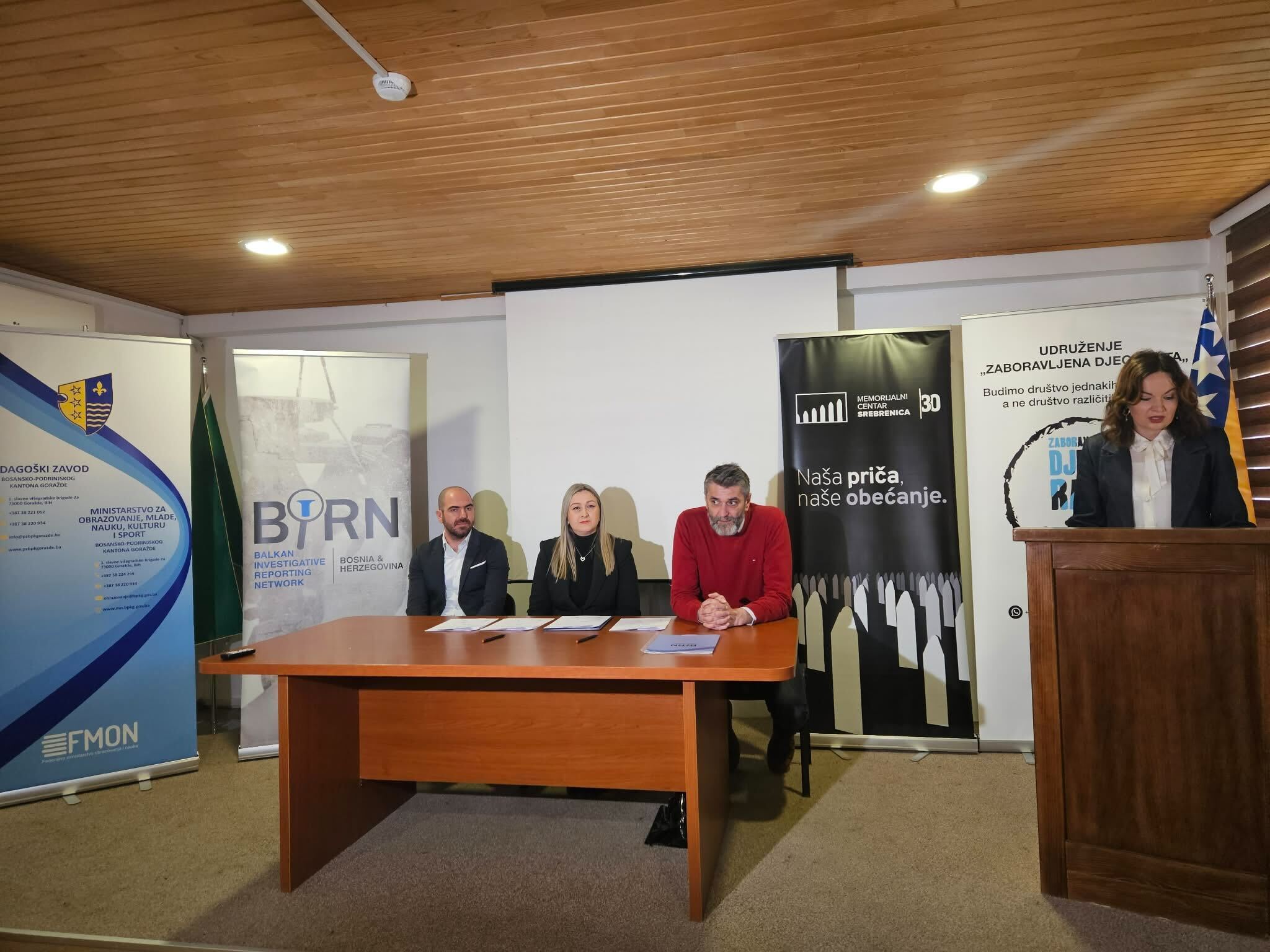This post is also available in: Bosnian
“We were held in the military barracks in Bratunac. He asked us what we ate, where the Army was and so on. It happened a long time ago, but I will never forget it,” Haso Hasanovic told BIRN-Justice Report.
He says that he was very glad to hear the news of Mladic’s arrest, although he thinks that he should have been captured 16 years ago. Hasanovic’s neighbours, returnees to Lehovici village, Srebrenica municipality, were also happy when they heard the news about his arrest.
“There are four or five families here. They are very happy. I was not at home when the news came yesterday. They called me to let me know about it, but I could not believe it until I saw it in the evening news,” Hasanovic said.
Hasanovic, who was 16 years old in 1995, survived the capture of Bosniak men in the Srebrenica area, most of whom were then shot, two times.
He is one of many witnesses who have testified about the events that took place in July 1995 in Srebrenica at the trials of indictees charged with genocide and other crimes committed in the town.
In his testimony at a trial held before the Court of Bosnia and Herzegovina, protected witness S-111, one of the few survivors of the executions in Kravica warehouse on July 13 and 14, 1995, also described his meeting with Mladic. He said that before he was taken to the warehouse together with other prisoners, Mladic addressed them in a meadow in Sandici, Bratunac municipality.
“He told us: ‘Your families have been evacuated. You will be evacuated in a day or two. Nobody will beat you. You will be given food. It is hot in here. We shall put you in a cooler place’. I got up and asked him: ‘Comrade General, you can see that I am barefoot. I have shoes in my backpack and I would like to put them on’. He told me I would get my shoes…” the witness said.
The protected witness explained that Mladic’s words were encouraging, and he believed the military leader.
Witness Munira Subasic said that soldiers came to the UNPROFOR’s Base in Potocari at night on July 11 and told them that “the situation would calm down” on the following day because General Ratko Mladic was coming.
“Mladic really appeared in Potocari on July 12. Two cameramen accompanied him. He consoled us and said he would rescue us. We were hungry and thirsty. The children kept crying. He gathered them and gave them candies and chocolate bars. As soon as the cameras were shut down, many children were killed,” Subasic said.
Subasic said that she saw her son for the last time in Potocari on July 12.
“Mladic approached me and brought my son, as I asked him. I held him by one sleeve, while a Serb soldier held him by the other one. I wanted to keep him, so they would not take him away. He managed to tell me not to worry. He said that everything would be all right…I never saw him again. I have not even found his bones. He was 18,” Subasic said.
Witness Z2 said that, as an elderly civilian, he was in Potocari with women and children when Mladic appeared.
“I stayed in Potocari for two days. I saw Ratko Mladic there. He was giving chocolate bars to children. He loved them so much that he killed their fathers and made them orphans,” Z2 said.
Describing the separation of men in Potocari in July 1995, witness Mile Janjic said that between eight and ten buses, each carrying between 70 and 80 men, departed on the first day, while at least twice as many departed on day two.
“I asked them why they were separating the men. They said that General Mladic said that women and children should go first because it was hot and men should follow,” Janjic said.
Many witnesses spoke about the meetings held in “Fonatan” hotel on July 11 and 12, 1995. Besides Mladic, the meetings were attended by members of UNPROFOR’s Dutch Battalion, local civilian authorities from Bratunac and representatives of Muslims from the Srebrenica area.
“Prior to the meeting in ‘Fontana’, which was scheduled for 10 a.m., we met in the Bratunac Brigade Command premises. Mladic asked us: ‘What are we going to do with these Muslims now?’ We said we did not know and we should check what the Muslims wanted,” said witness Srbislav Davidovic, former President of the Executive Board of Bratunac, who was accompanied by two other representatives of local authorities at the time.
He said that when they met in “Fontana” later on, Mladic told the Bosniak representatives several times that they could stay and they would be safe provided they handed their guns over, adding that those who had committed crimes would be processed.
When asked by the Prosecutor if he thought that Mladic was telling the truth, the witness said he thought so at the time, but he now realized that “it was not the case”.
Slobodan Mijatovic, who was among the military policemen who escorted Mladic on his way from Srebrenica to Han Pijesak, said that the group stopped in the vicinity of Suceska village.
“Mladic addressed members of the ‘Vukovi s Drine’ police unit from Zvornik, telling them not to rush and conduct their actions in a wise manner, because the world has given them plenty of time,” Mijatovic said.
In his testimony, Dragomir Vasic, who was Chief of the Public Safety Center in Zvornik in July 1995, described what Ljubisa Beara, then Chief of Security with the VRS Main Headquarters, told him when they met each other.
“He said that his task was to execute all of the prisoners, adding that he got the order from his boss, General Mladic,” Vasic said.
The Hague Tribunal sentenced Beara under a first instance verdict to life imprisonment for crimes committed in Srebrenica.
Many of the former members of Serb forces and police who testified before the courts described Mladic as a rigorous general, adding that almost nobody dared confront him. Momir Nikolic, who is serving his 20-year sentence for crimes committed in Srebrenica, testified about his meeting with Mladic in Konjevic Polje on July 13, 1995.
According to Nikolic, Mladic told the Bosniak captives who were there when he came that they would be transferred to Kladanj. He said that, when he asked him what would happen to those people, the General waved his hand in a way, which, in his opinion, meant that they should be executed.
“Confronting Mladic at that time was like committing suicide,” Nikolic said.
Indictments and verdicts covering the killings in Srebrenica list the warehouse in Kravica, the farm in Branjevo, the Cultural Center in Pilica, Orahovac village, the water-gate in Petkovci, the school building in Rocevici and River Drina banks in the Kozluk area as the locations where the biggest mass executions of Bosniak men took place.
“Mental suffering is worst of all. You ask yourself what happened, why it happened…Even though 13 years have passed, we start each day by telling each other about our dreams about the war or our children, and sharing news about whose remains have been found and in what grave,” Munira Subasic said in her testimony several years ago.



